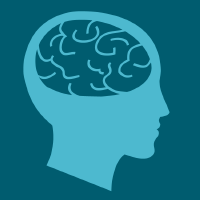
Brain Sciences, Vol. 9, Pages 123: Feasibility of Non-Gaussian Diffusion Metrics in Chronic Disorders of Consciousness
Brain Sciences doi: 10.3390/brainsci9050123
Authors: Kremneva Legostaeva Morozova Sergeev Sinitsyn Iazeva Suslin Suponeva Krotenkova Piradov Maximov
Diagnostic accuracy of different chronic disorders of consciousness (DOC) can be affected by the false negative errors in up to 40% cases. In the present study, we aimed to investigate the feasibility of a non-Gaussian diffusion approach in chronic DOC and to estimate a sensitivity of diffusion kurtosis imaging (DKI) metrics for the differentiation of vegetative state/unresponsive wakefulness syndrome (VS/UWS) and minimally conscious state (MCS) from a healthy brain state. We acquired diffusion MRI data from 18 patients in chronic DOC (11 VS/UWS, 7 MCS) and 14 healthy controls. A quantitative comparison of the diffusion metrics for grey (GM) and white (WM) matter between the controls and patient group showed a significant (p < 0.05) difference in supratentorial WM and GM for all evaluated diffusion metrics, as well as for brainstem, corpus callosum, and thalamus. An intra-subject VS/UWS and MCS group comparison showed only kurtosis metrics and fractional anisotropy differences using tract-based spatial statistics, owing mainly to macrostructural differences on most severely lesioned hemispheres. As a result, we demonstrated an ability of DKI metrics to localise and detect changes in both WM and GM and showed their capability in order to distinguish patients with a different level of consciousness.
Read Full Article
Δεν υπάρχουν σχόλια:
Δημοσίευση σχολίου